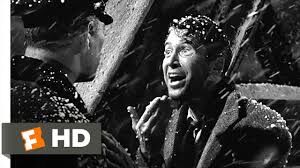Gratitude
Death and Thanksgiving
At a time like this, memento mori can be a powerful gratitude prime.
Posted November 27, 2020 Reviewed by Gary Drevitch

Last week, the folks on the obituary desk of Radio France Internationale saw their worst nightmare materialize. A computer bug caused more than a hundred obits, banked and awaiting deployment, to be published, instantly "killing off" public figures ranging from Queen Elizabeth to Péle.
Alerted to the gaffe, the broadcaster quickly pulled the stories and issued an embarrassed apology. But the damage had already been done. It created a funny (funny weird, not funny ha ha) existential moment for the people who’d been named. For a few hours, they’d been wiped from the ledger of the living. This is not an experience many of us get to have. It’d be like hearing the crowd talking about you at your funeral through the lid of the casket.
Memento mori are curious and powerful things. Reminders of death, it turns out, can bring out the best in us, but also the worst. When we’re nudged to think of death in the abstract – the simple fact that no one gets out of this rodeo alive – we become emotionally stingy. To manage the terror, we tend to pull up the drawbridge, keeping anything foreign and dangerous at bay.
But when we’re prompted to contemplate our own death – the particular time and circumstances of it — it can spur us to do better and be better.
Years ago, for interesting personal reasons, Wired magazine founder Kevin Kelly created what he called his personal “countdown clock.” He fed actuarial and lifestyle data into an algorithm that spat out a number. He set his computer to display this number on his monitor when he booted up.
The number was a kind of photographic negative of his age. Not miles on the odometer but miles yet to go. Seeing that number – his estimated days of life left – amped up the preciousness of every perishable minute. And it forced him to distinguish between what’s important and what isn’t – and to put his heart and energy where it could be of most use.
One thing death reminders almost universally do is make people grateful to be alive. That’s what makes the timing of the RDI obituary mistake so interesting. It came right before American Thanksgiving — a Thanksgiving like no other, with empty chairs at the table and the Covid numbers hanging over everything like a pall.
Gratefulness has exploded into a kind of superemotion. Gratitude journals fly off the shelves, and counting your blessings is said to pay crazily disparate dividends, from greater self-discipline to sounder sleep. But imagining losses is arguably a more powerful strategy than tallying gains. Psychologists Dan Gilbert and Timothy Wilson call it “mental subtraction.” Basically, it’s using “what might have been” thinking as a pickup rather than a bring-down: Here’s the way things could have played out but thankfully didn’t.
The art of losing isn’t hard to master. It’s a trick the Stoics actually figured out two millennia ago. It goes like this: You call to mind the most precious things in your life. Then you think how much you’d miss them if they were taken away. You imagine them gone. You really sell yourself the idea that you’ve lost them. You let the bereavement sink in. And now the rewarding part: You bring them back.
You shake yourself awake from the nightmare. You welcome the truth. That empty chair at the Thanksgiving table only means that Uncle Colin didn’t think it prudent to make the trip, what with Covid and all. He’s still in your life, not far away, bingeing on Netflix.
Mental subtraction is something we all do fairly routinely, and involuntarily. Whenever life sends you into a skid but somehow you pull out—you thought you lost all your work in that computer crash, but lo and behold, it’s been saved; you find your car keys just as you’re dialing the locksmith—a kind of psychological overcorrection happens. There’s that sudden rush of appreciation. The world’s rosy hue has been restored. You feel really good. Better, actually, than if you’d never “lost” the thing in the first place.
The most precious item we can have returned to us is, of course, life itself. Heart attack survivors often report an almost cosmic surge of gratefulness upon waking up. Like post-abyss Ebenezer Scrooge or George Bailey, they resurface with their souls enlarged, their sense of purpose sharpened.
There’s a short story by Simon Rich called “The Present." Rich is usually a humorist, but this one's as heart-wrenchingly sad as anything O Henry ever wrote. And a mental subtraction prime par excellence. Yesterday I played an audio version of it, read by Harry Potter (er, Daniel Radcliffe), for our 13-year-old daughter. She listened in silence, then handed back the headphones. Her face was a mask.
“Good story,” she said. That was it.
But I thought I detected a little more attentiveness at the dinner table that night. A little more eye contact. A little more care passing the water.
A little more gratitude that every chair was occupied.




